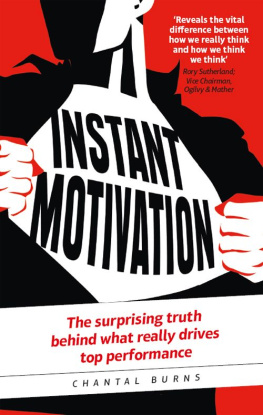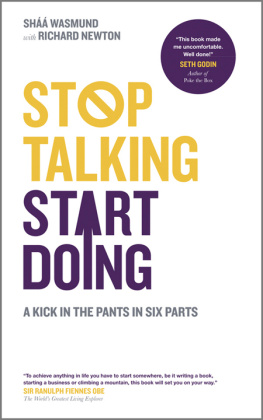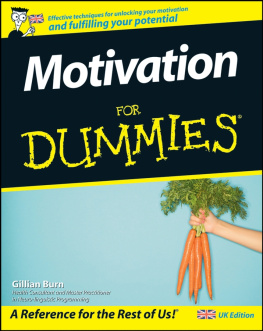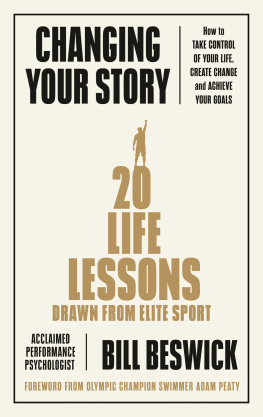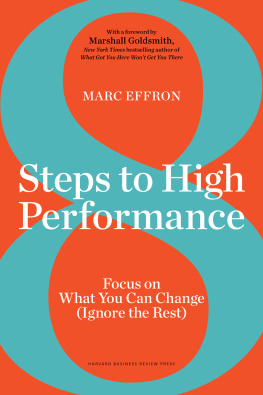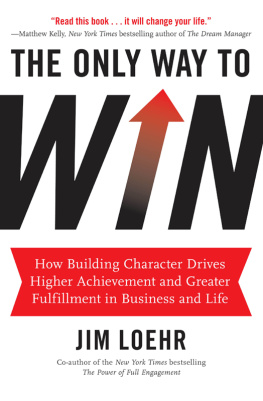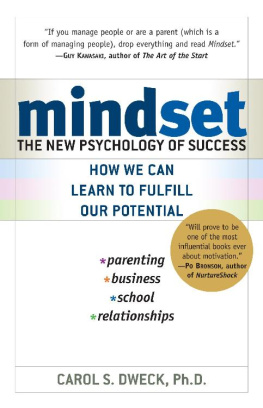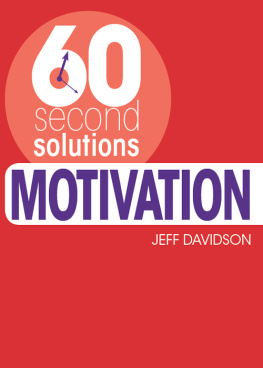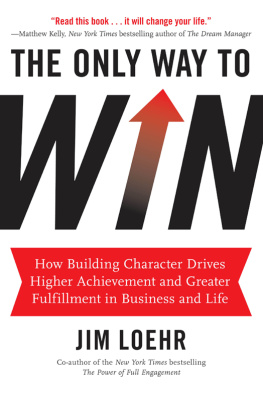For my family
I love you
Contents
Foreword
It is a pleasure to write a foreword to this book.
What the author Chantal Burns shares here represents a new paradigm for psychology. In a field where there exists a plethora of psychological theories and models, this paradigm offers a comprehensive explanation that accounts for all human experience. It is also very hopeful in that every human being has the capacity to realise the wellbeing and wisdom they were born with.
I have known Chantal for several years now and she walks her talk. She lives the understanding she presents in this book in her work and in her personal life.
Working with leaders and teams in many settings, she brings a certainty of the fact that wellbeing and wisdom resides within every human being.
In a practical and engaging way, Chantal will reveal how learning one simple truth about how the human mind works can lead to a vast array of powerful and positive changes. This book and the wisdom it contains is the key to a satisfying, successful and inspiring work life.
Thirty years ago, after being introduced to a man called Sydney Banks, I had an insight into what truly accounts for the psychological experience of all human beings. Prior to that realisation I had been working as a Clinical Psychologist in the mental health and addiction fields and was discouraged by the limited results that my clients were achieving. I knew in my heart that there was a deeper dimension of wellbeing that could be realised but I didnt know how to reach that innate resource for my clients or for myself. Like them, I attributed my various states of mind to my life circumstances whether that was my job, my past, my colleagues or some other factor. It wasnt until I found the understanding presented here, that I realised the true source of all states of mind.
As a Clinical Psychologist I introduced this groundbreaking approach into the mental health and addictions field with extraordinary results. I saw first-hand as people in emotional pain transformed into hopeful, happy and creative human beings. They reported a clarity with which they were able to deal with all manner of circumstances that previously would have confused, frustrated or depressed them. They developed deeper connections with family and friends and stronger relationships with colleagues. They found an ease and contentment with life, which allowed them to perform well whatever demands were placed on them.
For 15 years, as Director of the Chemical Dependency Services, I led a programme for a major medical centre in the San Francisco Bay Area. Operating from this new paradigm, my own leadership style changed dramatically from using management strategies and tactics to get the most out of my team, to one where I created the emotional climate that would bring out the inner resources of each team member, allowing them to create sustainable solutions and perform at an optimal level. I watched as my team began to work together harmoniously, with high levels of engagement. Their communication became clearer and more honest, and conflicts were resolved easily. Rather than getting discouraged, we felt motivated by the challenges we faced, which spurred us on to achieve greater results with our clients.
Several years ago I was part of a training programme that brought this education into the business field. It was a programme designed for managers, team leads, and division directors, to foster a more cooperative considerate and high-performing culture. They entered the training feeling stressed, pressured and speedy, without much connection with their colleagues. And just a few days later, after being presented with a new understanding of the mind, they were more connected, caring, relaxed, humorous and creative. They appeared inspired and excited about their work. In fact some of them had discovered solutions to their team problems that had seemed unsolvable just a few days earlier.
So what could account for this dramatic change in such a diverse group of high-level professionals?
Its what youll find in this book, as Chantal shares the secret to how a simple understanding of the human experience can produce the kind of results that we have observed across many areas from mental health and addictions to education and business.
Chantals words will be encouraging and uplifting, as you discover why you dont need to change anything about your life in order to experience high levels of inspiration, motivation, wellbeing or creativity.
Mark Howard, PhD
Burlingame, California
3 September 2014
The Big Picture
Why read this book
What if the single most important factor that motivates outstanding performance was being overlooked by the majority of the working population? And what if the solution to a happy and high-performance life is far simpler than its portrayed to be?
There are two reasons why this crucial performance factor is being overlooked. Firstly, its invisible to most people, which means its not on their radar and secondly, when it is visible its largely misunderstood. And evidence of this misunderstanding is all around us.
Organisations invest significant sums on the next cutting-edge development programme only to find that peoples behaviour doesnt change and when it does, the changes dont last. Many change programmes simply dont produce the required results.
Despite ever-increasing numbers of high-performance, personal development and motivational books and training programmes, and more workers are reported to be struggling with stress and anxiety than ever before.
At this years World Economic Forum where the good and great come together to debate and discuss world issues, mental wellbeing was high on the agenda with a record number of sessions dedicated to this topic. According to Harvard University and the WEF, mental health illnesses may cost $16 trillion in lost output over the next 20 years.
Multiple ways to communicate are expanding our options, yet they also create complexity or unnecessary distraction. Were expected to achieve more with less and we want everything now. People complain of information-overload and technology has created an always available/always on culture.
The opportunities and choices that life presents are almost unlimited now, yet for many, this expansion has become part of the problem. Feelings of insecurity and worry have become normal and they come with a high cost to our wellbeing and work life.
But its not all gloomy. This is one of the most exciting and progressive times ever. Were more connected than ever before and theres a growing interest in psychology and what it means to be human. A shift in consciousness is taking place and people are asking more fundamental and important questions about what really matters. People are questioning the true definition of success and happiness.
Ive spent 27 years in the world of work. For the past 15 years Ive been working as a leadership coach, teacher and consultant, supporting individuals and organisations to overcome challenges, build thriving businesses and unlock the unlimited potential available.
Ive worked with thousands of people at every level of seniority, across several industries, from CEOs and sales teams to project managers and social workers. Whilst, on the surface, organisations have diverse cultures, different goals to accomplish, unique problems to solve or needs to meet, it seems that fundamentally we all want the same things to experience a sense of fulfilment, feel inspired and ultimately be happy.
Throughout my career, Ive remained curious about why some people change easily, whilst others struggle and stay stuck in old mindsets and behaviours, despite saying they want to change. How do some people stay motivated and inspired in situations where others have given up?

